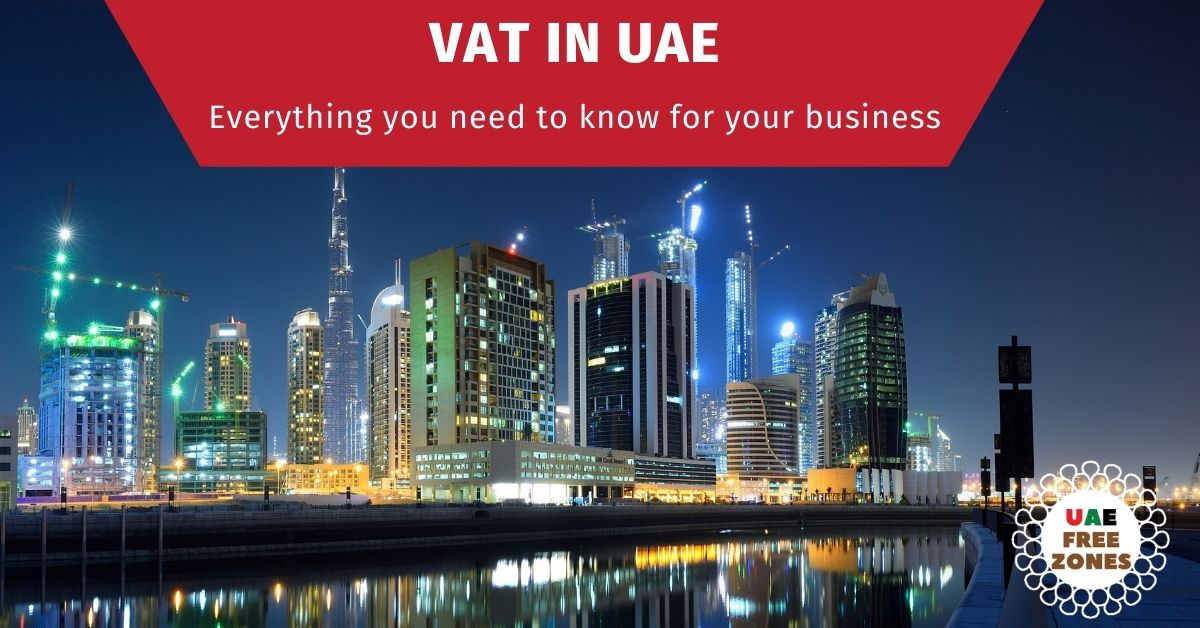


The UAE's Value Added Tax (VAT) was implemented on January 1, 2018, at a rate of 5%. As a general consumption tax, the VAT will apply to the vast majority of goods and service transactions. At each stage of the supply chain, the UAE uses VAT on tax-registered firms on taxable supplies of goods or services. VAT-registered companies collect the money on behalf of the government; consumers pay the VAT through a 5% rise in taxable products and services in the UAE.
Find out that not every company needs to pay VAT. If a company's taxable supply and imports surpass the statutory registration level of AED 375,000, it must register for VAT. Furthermore, suppose the total amount of a company's taxable supply and imports (or taxable costs) exceeds the voluntary registration level of AED 187,500. In that case, the company may opt to register for VAT voluntarily.
The 0% VAT rate applies to products and services exported outside the VAT-implementing Gulf Cooperation Council (GCC) member states, international transportation, crude oil/natural gas supply, the first delivery of residential real estate, and particular categories such as health care and education.
Furthermore, a person shall be considered 'outside the state,' and thus fall under zero-rating export of services if they only have a short-term presence in the state of less than a month. The company is not effectively connected with the supply, according to Cabinet Decision (No. 46 of 2020) on June 4, 2020.
Specific financial services and the following supply of residential real estate are subject to a VAT exemption. In addition, VAT is not charged on bare land sales or domestic passenger transportation.
Certain goods transactions between UAE Designated (Free) Zones (DZs) enterprises may be exempt from VAT. However, in accordance with the general application of UAE VAT regulations, services provided within DZs are liable to VAT.
Foreign enterprises may also be able to reclaim the VAT they pay while in the UAE.
Generally, VAT does not apply to UAE free zones. VAT is not charged in the 20 designated free zones. In terms of value-added taxes, designated zones are special zones for VAT purposes that are normally regarded outside of the UAE. While VAT is charged across the UAE, it is not charged in the designated 20 free zones. The selected 20 free zones among the country's 45 free zones are exempt from paying taxes on products transferred between them. Important free zones like Jafza, Dafza, and Kizad are on the list, as predicted.
In Dubai:
- Jebel Ali Free Zone(North-South)
-Dubai Cars and Automotive Zone (DUCAMZ)
- Dubai Textile City
- Free Zone Area in Al Quoz
- Free Zone Area in Al Qusais
- Dubai Aviation City
- Dubai Airport Free Zone
In Abu Dhabi
- Free Trade Zone of Khalifa Port
- Abu Dhabi Airport Free Zone
- Khalifa Industrial Zone
In Sharjah
- Hamriyah Free Zone
- Sharjah Airport International Free Zone
In Ajman
- Ajman Free Zone
In Umm Al Quwain
- Umm Al Quwain Free Trade Zone in Ahmed Bin Rashid Port
- Umm Al Quwain Free Trade Zone on Sheikh Mohammed bin Zayed Road
In Ras Al Khaimah
- RAK Free Trade Zone
- RAK Maritime City Free Zone
- RAK Airport Free Zone
In Fujairah
- Fujairah Free Zone
- Fujairah Oil Industry Zone (FOIZ)
An industry leader in business consultancy and company formation in the UAE for over a decade, UAE Freezones (an established online platform for Global Resources) has been designed for entrepreneurs that have a business idea but don't have the knowledge, resources, or experience to move their concept forward and kickstart their business in the UAE.
UAE Freezones offers a bespoke advisory service that gives clear direction and guidance to savvy investors who want to set up their operations in the Emirates, whether onshore or offshore.